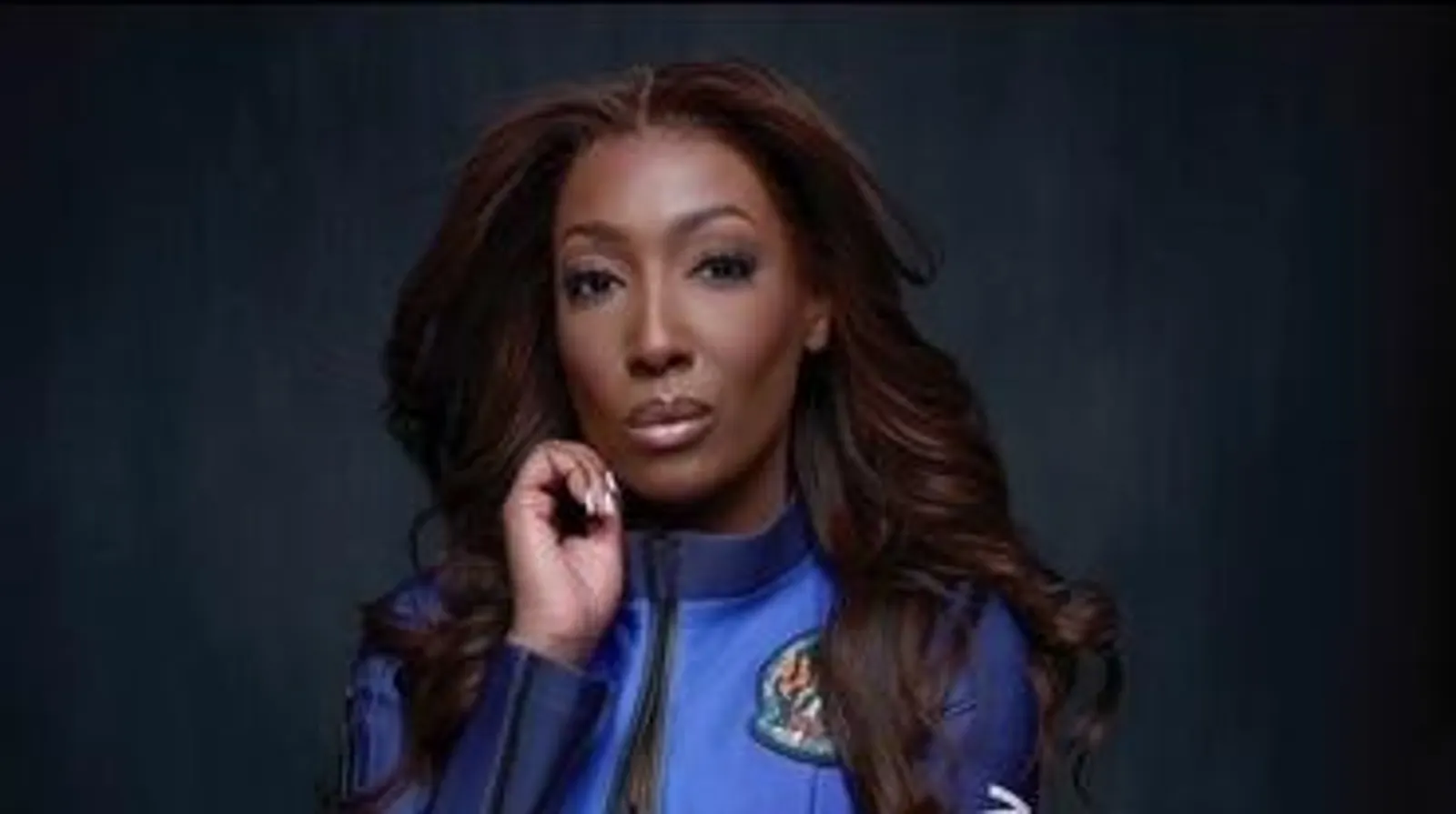Copyright Salt Lake City Deseret News

It isn’t surprising Gen Z women like to sit around and complain about men. That’s likely been going on since the dawn of time. But social media appears to have made these communal opportunities to share grievances even more pervasive. Scholars have even come up with terms for the lack of faith women have in relationships with the opposite sex: heterofatalism, or heteropessimism. But what happens when you point the finger the other way? The involuntary celibates, “incels,” of the manosphere are a well-known phenomenon — radicalized men who have lost their way, who have trouble attracting women and think it’s the fault of feminism. But the flip side — radicalized feminists, like those who might say a bear is less scary than a man — do not face the same public scrutiny. I recently asked my followers on social media if they identify as a radical feminist, a traditional feminist or don’t identify as a feminist at all, and surprisingly, many women said they don’t want to call themselves feminists because of the political connotations. It was just anecdotal, not a scientific sample, but the fact that women don’t want to call themselves a feminist — a term defined as a person who believes in equality between women and men — says something about the state of the feminist movement today. It’s impossible not to politicize feminism, Valerie Hudson, a Deseret News contributor and distinguished professor at Texas A&M, where she directs the Program on Women, Peace and Security, told the Deseret News. But, “What most people are referring to by the term ‘politicized’ is whether feminism is on the political left or on the political right, and how feminism figures into the fight between those two poles of the political spectrum in our country,” she said. “What those who want to see a sincere partnership between men and women eventually discover is that neither the left nor the right can call themselves true friends of women. Both the left and the right have betrayed women, and will continue to do so into the future. Women, and those who truly love them, must find a third way.” A third way wasn’t found in a recent social media spat between conservative commentator Riley Gaines and Democratic Rep. Alexandria Ocasio-Cortez. After Gaines posted a photo of Ocasio-Cortez with fellow socialists, Sen. Bernie Sanders, and New York City mayoral candidate Zohran Mamdani with the caption, “We’re being destroyed from within,” the congresswoman clapped back. “Maybe if you channeled all this anger into swimming faster you wouldn’t have come in fifth,” Ocasio-Cortez said, referring to Gaines, who became one of the leading voices against transgender athletes competing in women’s sports after she tied for fifth place with transgender collegiate swimmer Lia Thomas in an NCAA championship event in 2022. In Gaines’ reply she called Ocasio-Cortez a “misogynistic dunce,” and challenged her to a debate, to which the politician said she “would like to challenge this person to get a real job.” “I have a real job. I’m a mom. It’s the most important & rewarding job in the world,” Gaines responded. The exposed highlighted some of the biggest arguments among feminists today: Is it “feminist” to give a gold medal to a transgender athlete over a biological female? Does choosing family over a career mean a woman is oppressed? The other question, which has plagued modern feminism for decades, is: can you be a feminist and not constantly criticize men? “We need a middle ground,” Neeraja Deshpande, an education policy analyst at the Independent Women’s Forum, told the Deseret News, “where women are protected, where we do actually acknowledge the inherent vulnerabilities of being a woman, without completely infantilizing women — and without hating men.” “It’s one of those labels that almost means nothing at this point,” Deshpande said about the word feminism, while adding she does still consider herself a feminist — in part. “It’s unfortunate that (feminism has) become the property of women who don’t necessarily have the best interests of women in mind.” When Roe v. Wade was overturned in 2022, some women protested at capitols across the country, chanting “my body, my choice” and “hands off my uterus.” Feminism was the framework used to defend bodily autonomy, as it was during the sexual revolution of the 1960s and ’70s. On the pro-life side, women spoke about their unique role as mothers, and the need to protect human life. And when Trump entered the White House for a second term, while conservative women celebrated, some American women threatened to take part in the 4B movement — a South Korean feminist movement that stands for no marriage, no childbirth, no dating and no sex with the opposite sex. “Feminism has always been fragmented, just as any political movement inevitably becomes,” Hudson explained. “I have seen vicious fights between different schools of feminism, with factions taking the completely opposite position on issues such as prostitution, porn, and transgenderism.” “Even so, the quest for women to be treated as full human beings by men will never end or be abandoned. The stakes are just too high. Unless men and women can hammer out a rough modus vivendi, there literally will not be a future," she added. “There is no more important issue for the nations of the world than the issue of who women are and how they are treated by men. It is the great pivot.” So, what does being a feminist mean for today’s women? In a time when women have more options than ever, the debates linger. Can you be a mother and a politician? A feminist and have a healthy relationship with men? What if you want to get married and be a stay-at-home mom ... exercising that choice can be feminist too, right? Feminism as a spectrum As with any social idea, the most extreme positions tend to draw the most attention. One social media user named Krystle, whose bio touts her as a source for the “feminist revolution,” went so far as to say that single women need to stay away from married couples because the lifestyles aren’t compatible. “They’re trapped and brainwashed and we’re free and awakening. ... just think about it, they have to sacrifice their independence, their finances, their every decision to get the ‘OK’ from the other spouse,” she said. The video of her caption left a warning: “Married women will try to re-brainwash you just so they can feel better about their selfless, sacrificing miserable life ... stay away from them. #womenempowerment #feminism.” On the other end of the spectrum is the manosphere, with commentators like Myron Gaines, who posts things like how American men are traveling to foreign countries because women in the free world aren’t domestic enough. If these are the loudest voices hijacking social media, how will younger generations understand their roles in society? Emma Keddington, a 26-year-old program coordinator at the University of Utah dental school, who identifies herself as a radical feminist, said that extreme and radical are not synonymous. “I think radical is just genuine, like in my heart, radical means genuine to yourself,” she told the Deseret News. “So I would say that anyone who’s just true to their beliefs is radical.” Where Keddington says she experiences frustration is with the mindset that feminism is no longer necessary in modern society. “We need to remember that there are still so many things that need to be changed,” she said. There are statistics that back her up. The 2025 World Economic Forum report on the Global Gender Gap found that it will take 123 years before gender equality is achieved, meaning 68.8% of the global gender gap has been closed, up 0.3 percentage points from last year. Last year, a Pew Research survey found that the average income for women is 85% of what men earned — a slight increase from 81% in 2003. And in 2023, a United Nations Women report shared the jarring statistic that a woman or girl is killed every 10 minutes by their intimate partner or family member: “Globally, approximately 51,100 women and girls were killed by their intimate partners or other family members during 2023. Higher than the 2022 estimate of 48,800 victims.” On the flip side, women now make up a majority of college graduates, which is true for every major racial and ethnic group, according to Pew Research Center. They also make up a majority of medical school and law school students. Emily Ricks, a resident physician and also a self-identified radical feminist, like Keddington, said that beyond the more visible issues of wage gaps and violence, there are subtler but equally telling examples of inequality baked into everyday life. Something as seemingly neutral as a seatbelt, even. “Cars are based on the average height of the average male in the United States and not the average female, which is why seat belts often do not fit women,” she said. “It’s just something that is so minor, but is an example of how men are kind of considered the default in our society, which is why radical feminists are saying that fundamentally society needs to change how we view men and women.” Ricks is frustrated with women who don’t identify with the label. “I would say the very fact that you’re able to make choices about your life, whether you want to work or not, whether you want to have children or not, whether you want to vote or not are all choices that are provided to you by feminists of the past, and it is those same rights that feminists of today are continuing to fight for,” she said. But have women been empowered by modern feminism? When it comes to anti-male rhetoric online, Keddington said she doesn’t believe the anger women have towards men is new; they now have a platform that allows them to express their feelings, something previous generations lacked. “I think that there’s a lot of good that’s come from women being able to completely express themselves online,” she said. While conservative Christian influencer Allie Beth Stuckey doesn’t see the same benefit to feminist rhetoric. “Modern feminism is basically giving the worst kind of men exactly what they want but doing it in the name of girl power,” she wrote on X. “Having as much emotionless sex as possible, killing their babies, cheering on men in girls’ sports, parading around nearly naked. Lol yeah!! That’ll show the patriarchy who’s in charge!” When Glamour magazine released one of its “Women of the Year” issues, depicting nine transgender women as some “of the community’s most ground-breaking voices at this year’s Women of the Year Awards,” J.K. Rowling, who has received backlash over her views on allowing transgender people into women’s spaces like prisons and shelters, didn’t sit this one out. “I grew up in an era when mainstream women’s magazines told girls they needed to be thinner and prettier,” she said on X. “Now mainstream women’s magazines tell girls that men are better women than they are.” Conservative writer Lisa Libresco Sargeant, who has also written for Deseret News, is the author of a recently published book “The Dignity of Dependence: A Feminist Manifesto.” On her substack, “Other Feminisms,” she said the two core lessons of her book are, essentially, that men and women are equal but not the same, and that we are all necessarily dependent on one another. Perhaps the best path forward for young women, as she and Hudson articulate, is to embrace this space for women where we are equal, distinct and vital members of society. And to try to see men in the same way.



